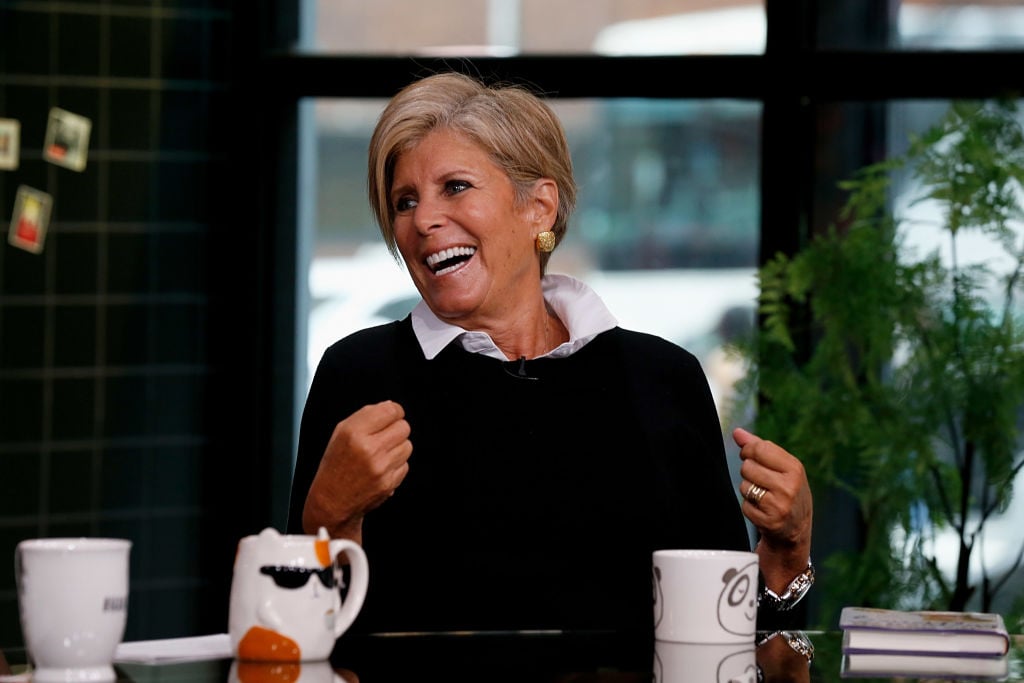
NASPA, one of the nation’s top professional associations for student affairs professionals, issued a lengthy apology Thursday for an “insulting and insensitive” speech by financial expert and television host Suze Orman, which drew immediate criticism from those attending the organization's virtual conference.
Orman was the keynote speaker Wednesday at NASPA: Student Affairs Administrators in Higher Education's 2021 annual conference. Her advice to attendees for improving their financial literacy was quickly and widely condemned on Twitter for being tone-deaf, uninformed and out of touch with the current socioeconomic climate.
Those who watched Orman's address said her comments, meant to inspire student affairs workers to advocate for higher pay and boundaries in their jobs, focused on major personal obstacles to wealth -- “fear, shame and anger” -- without noting systemic barriers to wealth such as class, race or gender. Some observers said Orman equated “net worth” to “self-worth,” which some felt was an insensitive way to frame the discussion of financial literacy with an audience made up of many entry-level student affairs professionals who are historically underpaid and heavily indebted with loans they used to finance their undergraduate and graduate degrees.
Some attendees were also offended by Orman’s reference to the South Side of Chicago, where she grew up, as "the hood" and "the ghetto," according to people who watched the keynote address.
NASPA leaders emailed and tweeted a statement apologizing to conference attendees a few hours after Orman's speech. The statement said the association had “missed the mark” for providing a speaker who made comments "offensive to your lived experiences and to our NASPA values."
“We cannot discuss financial literacy without first acknowledging the inequitable and unjust systems that have prevented Black, Indigenous, Latinx, Asian, Queer, Trans, first-gen, low-income, and many other historically minoritized and marginalized communities from attaining education and generational wealth,” said the statement, which was signed by NASPA board chair Angela Batista, President Kevin Kruger and Michele Murray, chair of the 2021 conference.
“Suze’s comments tied self-worth to financial progress, ignored the difficulties that many individuals experience when navigating existing systemic structures and tools, and used offensive language to describe the area of Chicago in which she grew up,” the statement said.
Kruger said that the association will not be releasing a recording of Orman’s keynote address and declined to comment further. Orman and her representatives did not respond to a request for comment submitted to her professional website.
Brittany Williams, a professor of higher education at St. Cloud State University in Minnesota, said Orman’s comments “fell flat,” especially in the context of the coronavirus pandemic and economic recession that has forced many colleges and universities to slash budgets and lay off or furlough staff members. Williams noted that the keynote was also given on March 24, Equal Pay Day, which marks how far into 2021 many American women would need to work to make what their male counterparts did in 2020. Williams said Orman did not adequately address systemic issues that prevent female student affairs professionals from reaching the ranks or salaries of their male counterparts in administrative roles.
The keynote felt “very corporate” and not tailored to higher education; Orman did not seem to have any expertise in higher ed pay structures and finance in general, Williams said.
“There was no recognition of the systemic barriers to wealth that exist,” she said. “I wouldn't have picked someone outside of education, with no real financial knowledge of issues in higher education. The larger problem is, we talk about money in these corporatized ways that don’t align with how higher education functions.”
Williams said Orman’s keynote address was not representative of the overall conference, which began March 17 and ended today. She noted that the association has faced backlash for previous keynote addresses or “conference flubs,” such as in 2015 when conference attendees posted hateful and sexually suggestive messages about the student affairs field and conference attendees on the anonymous social media application Yik Yak and the association had to release a statement condemning them.
Orman's comments were representative of the generational differences between association leaders and members and how younger professionals expect their institutional leaders to speak about equity issues, Williams said. (Orman is also 69 years old and attended the University of Illinois Urbana-Champaign in the 1970s.)
Williams said NASPA leaders "set the tone for the priorities in the field, and the keynote says a lot about what our values should be in the field." She said that boomers, Gen Xers, millennials and Gen Zs have "different views of how we should broach equity more broadly. We’re going to see more instances such as this until we reconcile that."
from Inside Higher Ed | News https://ift.tt/3dbTCRI


No comments:
Post a Comment